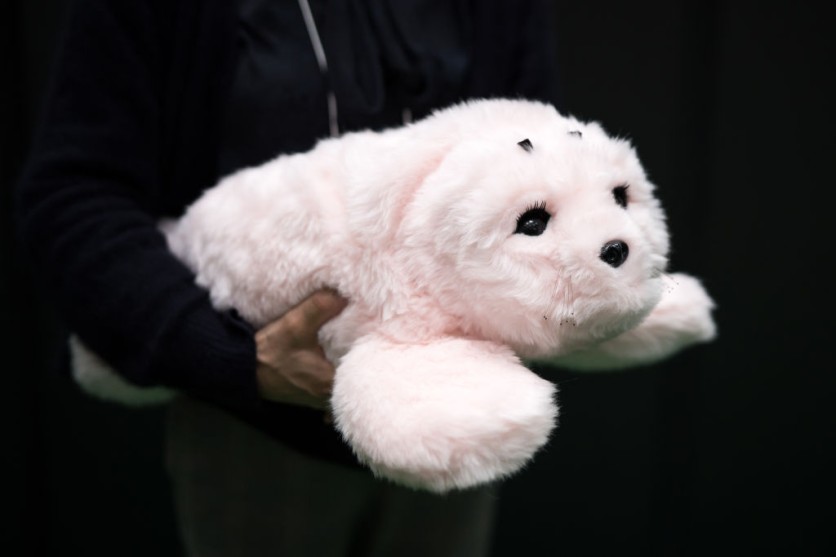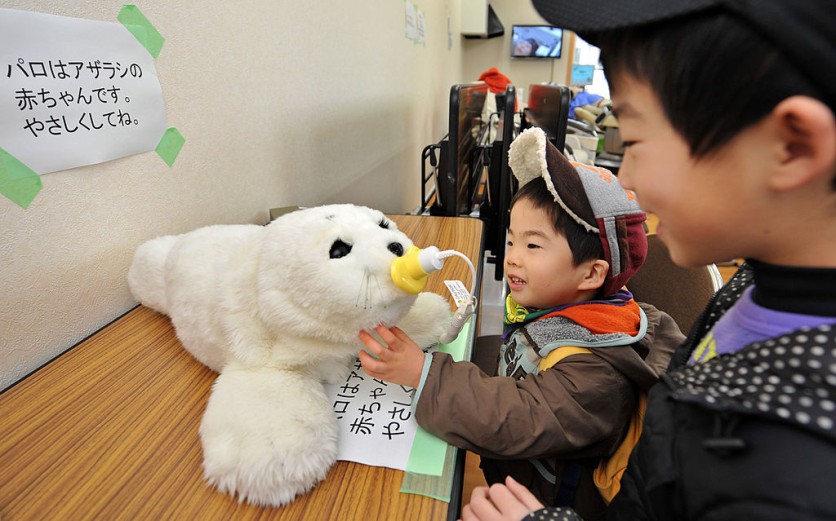Japan is exploring the possibility of sending cute robotic seals into orbit as part of a journey to Mars to see whether the AI-powered gadgets might help astronauts relax.

Paro in Space
According to South China Morning Post (SCMP), six participants underwent a Mars mission simulation last November at the Mars Desert Research Station in Utah, which the Mars Society runs.
The trainee astronauts practiced things like administering the first treatment, growing their own food, and recreating Mars's rock and soil. And a therapeutic harp seal-shaped robot, "Paro," was also put through its paces.
The report stated, "We studied how Paro mitigated feelings of stress and isolation, and the data will be useful in supporting research on future analogue missions."
Half of the team got to spend time with Paro the first week, and the other half did the same the following week.
During the simulations, astronauts were watched while they engaged with the robot. The effect on stress will be evaluated by comparing the findings to those of a control group.
According to robot designer Takanori Shibata, Paro's job is the same as animals that are trained to offer therapy, and these animals have been found to have beneficial impacts on their human counterparts.
In addition, he claimed that Paro is ideal for a demanding space mission since the trip to Mars would take six months, and the crew will likely remain on the red planet for two years.
"The crew on a Mars mission will therefore be very isolated, and there will be four people in a very limited space," Shibata told SCMP.
"There will be stress in their relations with other people in addition to the isolation. Paro will be able to improve the astronauts' mental health conditions."

As a Therapeutic Aid
Since its introduction in 1998, the robot designed by Takanori Shibata, a scientist at Japan's National Institute of Advanced Industrial Science and Technology, has shown its effectiveness as a therapeutic aid.
Artificial intelligence (AI) allows the robots to respond to touch, remember faces, and learn and repeat acts that provoke a positive response in the patient. These skills make them particularly useful in care facilities for people with dementia.
The robot has a network of motors and actuators that enable it to move its limbs and body realistically and gently. It also has twin 32-bit computers, three microphones, 12 tactile sensors, touch-sensitive whiskers, and an array of other sensors and actuators.
The 57cm long and 2.6kg Paro emits baby seal noises and is designed to be active during the day and sleep at night.
Guinness World Records recognized it in 2002 as the robot that generates the "greatest reduction in stress levels." Previous studies have shown that it may help autistic youngsters overcome their fears.
These cuddly robots may be found in the US and many European nations. They are employed in Japan's senior and mental health care institutions.
The government of Hong Kong subsidizes the price of a Paro device for those who work in the medical and social care fields.
Polish medical centers treating Ukrainian children traumatized by the Russian invasion have received six robots as a donation.

![Apple Watch Series 10 [GPS 42mm]](https://d.techtimes.com/en/full/453899/apple-watch-series-10-gps-42mm.jpg?w=184&h=103&f=9fb3c2ea2db928c663d1d2eadbcb3e52)



